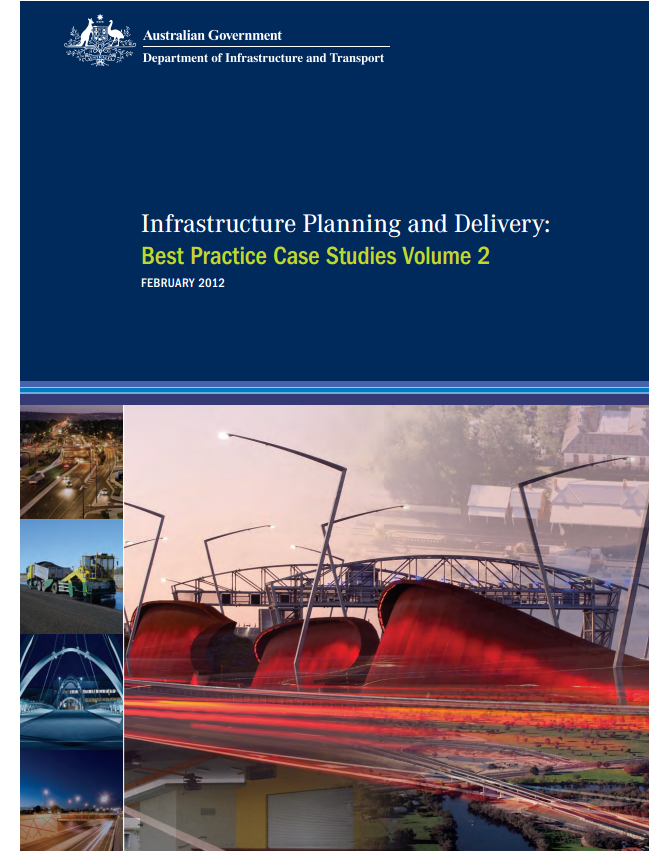Publications
Filter by
605 results found

The Framework provides systematic structure for proactively disclosing information pertaining to PPP Projects.



This report addresses the critical question: how can the public and private sectors build successful partnerships?



This booklet aims to provide a platform for sharing the knowledge gained through a review of best practice case studies within Australia s public sector.



A G20 report prepared by the Global Infrastructure Hub reviewing the extent to which Multilateral Development Banks (MDBs) create incentives within their organisations to crowd-in private finance to fund public infrastructure.


This publication analyses the relationship between several infrastructure indicators and income inequality in urban areas of the People’s Republic of China.

This publication aims to estimate the direct and indirect effects of infrastructure on firm productivity using firm level data from the People’s Republic of China using multiple regression techniques.

The study uses a new, annual data set on Internet availability from the Brazil school census, the study analyses Brazil's "internetrollout" and its impact on the employee wages and industry employment.


This document summarises the approach taken by Infrastructure Australia (IA) in assessing and prioritising initiatives and project proposals for placement on the Infrastructure Priority List (IPL). This process is part of IA's Assessment Framework, which is used to identify infrastructure initiatives and projects of national significance.


This report reviews experiences with strategic infrastructure planning with a view to identifying international best practices.


Good governance of public infrastructure can thus yield substantial benefits for all. Based on a survey of 27 countries, this report provides an overview of current practices in infrastructure governance and presents practical tools to help policy makers better manage infrastructure.


This book discusses in detail the issues and challenges associated with infrastructure connectivity in Asia.

This policy brief outlines promising ideas to attract instiutional investors to pay for infrastructure they have not convinced pension funds or affluent individuals to invest, especially in emerging economies with untested issuers, The “tax-kicker” bond being proposed here could solve this issue.


This document is the fifth edition of an informational tool and benchmarking index that assesses the capacity of countries in Latin America and the Caribbean to carry out sustainable public-private partnerships (PPPs) in infrastructure.


This paper exploits variations in the timing of telecommunications reforms across Europe to analyze the relationship between the rise of alternative work arrangements and the emergence of the Internet, which sectors are most impacted by the internet is also reviewed.

This report provides an analytical framework to understand the fundamental institutions of good telecommunications regulation and analyzes the governance of telecommunications in Latin America and the Caribbean.

This paper studies the impacts of providing an efficient and affordable transport system within a country through the experience of the Philippines.

This report includes the analysis of global Information and Communication Technologies (ICT) and electronics value chains, an assessment of Ethiopia’s current and potential participation in these regional and global networks, and an analysis of the country’s competitive positions in specific segments of the sector.

The study provides a quantitative analysis of the potential gains that would stem from improving efficiency in infrastructure spending in Latin America and the Caribbean.

This paper analyses how wider roads or more lanes can reduce vehicle emissions and help people be more mobile and efficient, longer roads can increase emissions, although not in a statistically significant way.

This publication is a guide for the government and donors in allocating and programming future funds to raise the efficiency of Afghanistan’s transport system.



